Waiting on the Word is the newest release from the acclaimed poet and author, Dr Malcolm Guite. It is part of a beautiful series of anthologies created with the purpose of taking us through specific seasons of our lives held in common with others, and it gives us a unique view to a season that is highly wrought with both meaning and emotional peril for many – Christmas.
I began reading Waiting on the Word several months ago in preparation for this interview and from the first page something about this book took hold of me in a different way than most of my reading does, even other works by Dr Guite, every one which I have loved, dog-eared and underlined. This one, however, spoke to me differently, compellingly, persistently. The more I read the more I saw an undressing of the cultural hoopla that has grown more noxious with every year and in its place a quiet, thoughtful unveiling of our own true condition. The condition we try to hide, especially at Christmas, behind the facade of consumer driven “well-being”. The condition of aching need, quietly (and perhaps not-so-quietly) breaking hearts while the world seems to spin more madly out of control. With each beautifully unfolding poem and Dr Guite’s masterful explorations of them afterward, a soft and steady rekindling of the memory occurs of why we celebrate Christmas at all and what we really have to celebrate in it. This book does in my own heart something akin to what Charles Dickens’ A Christmas Carol did for Christmas itself in Victorian England. In the pages of Waiting on the Word I hear revival rustling through its leaves and whispering with the deeply insistently voice of Love saying “Return to me. Come home to me.” I feel that deep call to look again with all the bravery I possess at why Christ came for us, came for me, and why in the midst of the gathering darkness I so fear, I truly have cause to hope. Few books in all my wide reading have stirred in me the remembrance of what we mean by “The Good News” as does this one. It may be that it affects only me this way. But you may find that it also speaks the same to you.
My earnest prayer for you this Christmastide is that you will find yourself in the company of both Beauty and Courage as this mysterious season unfolds for us and that you find again the reason we celebrate with shepherds in fields guarding their flocks by night and kings with their knees bent before a tiny, miraculous baby born beneath a star. I pray that you will be guided with peace, with comfort, and with love. May you find in the midst of the broken, disappointing and unkind, the Love that redeems all. May your heart lifted in praise and thanks. We are not alone. God came to live with us just where we are – Emmanuel – and will lead us Home to be with Him where He is.
LES: Dr Guite, your newest release is the anticipated companion to Word in the Wilderness, an anthology of poems for the season of Lent through Easter. Like Sounding the Seasons, your book covering seventy sonnets for the Christian year, and Word in the Wilderness, Waiting on the Word, is structured on the theme of observing regular times and celebrations shared in common in Christian community through a prism of poetry and personal reflection. What is the tie in observing rituals and the seasons of our lives? Why does it matter?
AMG: Well, we can’t think of everything at once! We are creatures who were made to inhabit time, though we also carry eternity in our hearts, and to be in time is to experience one thing at a time, one moment at a time, to have to lose one moment in order to experience the next. The danger is that we lose not only the moment, but the meaning of the moment. We become so eager for the next thing that we abandon the rich legacy of all that we have already been given.
The aim of observing regular times and celebrations, shared with a wider Christian community, is to stem that loss, and even reverse that flow.
By setting these celebrations in time, giving them each a recurring day in the year we can get Time, who takes things away to be Time who restores them. Time the thief becomes Time the provider!
Each Christmas that comes round we can enter a little deeply into the meaning of that one all-changing moment when the Word was made Flesh and dwelt amongst us, each Good Friday we can move a little more deeply into the grace and truth of knowing that he died for us, each Easter we can taste a little more of our risen life in Him.
LES: Many of the poems in this collection have no direct reference in the text to Advent or Christmas, including one of my favourites – The Moons by Grevel Lindrop. You bring beautiful pieces that are very old and juxtapose those with works that are written within a year or two of this publication’s release. You have poets from a highly rich range of voices: men and women, people of faith and people not-yet-persuaded of faith, old poets and younger ones, black and white, widely known and some virtually never heard of, and a diverse range of styles from sonnets to free verse. How did you choose which poems to use in this anthology and what are you using as the guiding principle in the order you placed them in the book?
AMG: Well, if I glance for a moment at my bookshelves, and perhaps if you glance at yours, or better still at the piles of opened books that are lying about sometimes on top of one another, I notice no apartheid, only a glad and free communion. On the desk in front of me Seamus Heaney happens to be leaning against Milton, the seventeenth century English protestant and the 20th century Catholic seem to be rubbing along fine, united by poetry. My Leonard Cohen, and my Dylan Thomas have somehow found themselves on either side of my George Herbert, and I can just imagine the conversation between these three poets, all haunted by a sense of the holy, all dogged by a melancholy undertow, all three of them wrestling with the heartbreaking alternations between ecstasy and routine. And if I turn from my outward and visible library to the bookshelves of my mind, where the books are not fixed but wander freely, where the pages and the very texts themselves are all alive and interleaved, where a line of Donne’s is suddenly harmonized with a line of Dylan’s, I find that magical things happen! I hope to make some of the same magic when I make an anthology like this. I know that academics have quartered and quarantined these poets into different categories, according to period, style, belief, world view etc. That has its place and purpose but it’s not what I’m doing here. In these anthologies I am not trying to impress the professors, I am breaking bread, sharing good things with my fellow pilgrims. Now because we are pilgrims, and there are staging posts along the way, special points in Advent to think about the antiphons, particular times in Epiphany to remember certain mysteries. I have ordered these poems to highlight those staging posts, but I have also tried to get some surprising conversations started, to put poems next to each other whose insights might highlight each other. For example I have put a poem of Donne’s and a poem of Scott Cairn’s next to each other, they are very different in period and style and yet both poets have something of the same heady mix of sensual attention, intellectual muscle, and rich spirituality.
But I also wanted a continuous thread of beauty, of something magical and numinous. Grevel’s poem, beautiful in itself, also speaks to the reader about looking out for beauty, threading beautiful glimpses together, which is very much what I hope will be happening in this anthology.
LES: You have mentioned in an earlier interview, Dr Guite, that your approach to at least some specific poets and their work, you interact with it more as an on-going conversation or dialogue. Would you expound a little for us on what it means to “summon a poem up not simply to explicate or agree with it but to engage with it as a conversation partner”?
AMG: Well this is a development of what I said in the previous answer. I don’t see poetry as once-done, dead text, fixed and formulated in black and white and pinned to the page like a dead butterfly in an old fashioned museum. For me poetry is the live butterfly. It’s a living thing. It doesn’t stay fixed to the page in the book where you first read it, but flits out of the page and into your mind where it lives its own life and grows wings. Then when another poem comes along that has some breath of connection with the first one, the two of them take flight together and start doing new things. So all the poems in this anthology can be found separately somewhere else, each in another book, another page another text, sometimes they come from books separated by hundreds of years, by oceans, by continents and cultures. But I have lifted them from those pages and brought them together and said ‘Be free. Lift each other, fly up from the page, dance with each other, circle round each other –lets see what happens.’ And sometimes I’ve been more deliberate than that – I’ve seen two poems that might not ever meet, except in the pages of this anthology, and I’ve thought, ‘Oh you two have something to say to each other – I want to leave you alone together for a while’. For example Spenser’s great ‘ Hymn of Heavenly Love’ from the 16th Century in which he tries to think about how the God of the Cosmos became a human being, and Luci Shaw’s delicate little poem about the new-born Jesus ‘Kenosis’. I can’t put Luci Shaw and Edmund Spenser in a room together and catch the conversation (not yet!) but I can put their two poems next to each other and listen for the way the poems affect each other when they are read together.
LES: What draws you to the themes of paradox, tensions between waiting and fulfillment, light and dark, loneliness and intimacy …?
AMG: I’m drawn to paradox and tension in poetry because I find it’s the only way of coping with paradox and tension in life. We are living ‘in between times’, between the first coming that gave us hope, and the second coming that will fulfill that hope, between our own first act of faith in Christ and the day we hear his ‘welcome home’, and that ‘in between time’ is difficult. Inevitably we feel we have fallen or are falling away from that first vision and vocation, inevitably we feel that final redemption and fulfillment seem distant. With all the saints we cry ‘How long’? But in the mean time we have to remember the signs and press on with the pilgrimage. I love the way in The Silver Chair, Aslan tells Jill that although the signs she has been given to guide her are very clear to her up in Aslan’s country, down in the midst and the mists of her adventure they may seem more confusing and she must keep remembering them. For me the poetry of paradox, of memory and hope, is one of the ways of remembering the signs.
LES: Facing the full nature of our need and our frailty is often an overwhelming frightening and painful reality – something many, many people spend all of their energy and efforts trying to hide from during the holidays. Depression, family arguments, stress, and despair increase during this time of year along with nearly everyone’s spending. The experience for many people is the precise opposite of what Advent, Christmas, and Epiphany are meant for in our remembrance and practice. Why does keeping company with Beauty itself give us a measure of grounding in comfort and courage enough to sustain us through periods of darkness and discouragement?
AMG: Yes for many it is a season of contrasts: All the rhetoric about peace and good will, all the crass commercial images about idealized happy families sitting down to the perfect dinner together in glitzy and luxurious surroundings with a smile on every face, all that can be very oppressive if the reality is loneliness, or a family whose gathering exacerbates tensions, or if the sheer stress of trying to live up to the idealized image of the TV ads just brings a sense of futility and depression. How do we cope with and resist all that? Well first of all we can recognize that the true peace and joy of Christmas is itself a gift, it’s not something we could possibly produce or manufacture anyway, it’s a sheer gift of God making peace with us and saying, “Here I am – Emmanuel, God with you, not against you.” God coming to you where you are right now, not expecting you to be in some idealized place before I arrive. My hope with this anthology is that if people can take a little time over Advent, say just five minutes a day with these poems, they might be able to stay in touch with that gift, that grace, that beauty, and that it might be like a little refreshing spring running under all the tensions and difficulties of the season.
LES: Contrary to all our historic and cultural messages of Christmas being the time to celebrate loving families, comforts of home, kindness toward our neighbours, and good cheer toward all mankind, Christmas time for many feels like a mockery of what it is “supposed” to represent. Our own broken lives, even as we are in the process of redemption and restoration, feel more exposed for the shambles they still seem to be in comparison to the ads and expectations surrounding us. What is the role of courage in our experience of Christmas, and in our preparing for Advent? What do you do in your walk with Christ to keep from being swept away by the undertow of discouragement and disappointment during this season?
AMG: Courage is exactly the right word here. Courage is about sticking to it and keeping going even when you thought you would give up, and you can’t have courage without encouragement! You need to be encouraged by the Good News, the news that the great victory has already been won for you and that even though you may personally feel you are facing a losing battle, the one who won the Victory is in it with you. He knows what defeat feels like and felt it for you and with you on Good Friday. But Good Friday wasn’t the end of His story and it isn’t the end of yours.
About ‘the ads and expectations surrounding us’, those ads showing the perfect Christmas, and the perfect Christmas dinner and the perfect family etc. We shouldn’t be in the least influenced, let alone intimidated by that sort of thing. Think about it! God made a point of arriving and joyfully blessing us right in the midst of chaos and confusion when nobody could possibly get everything ready in time. The Inns were full, there was no room, they couldn’t even get a proper crib into the stable but had to make do with a manger. They just had to make do and mend. Mary and Joseph would scarcely have won the prize for most splendidly organized and perfectly prepared Christmas party, but they had Jesus there, which was all they needed, and all we need, and then, what with the angels turning up, and the shepherds, and the kings, it turned out to be a pretty good party anyway.
LES: All this preparation for acknowledging our actual condition and receiving Christ at Christmas as Gift is in fact preparation for receiving Him at Easter as Sacrifice. What is the bridge between these two points for the individual believer and for the Church as His Bride?
AMG: Well I hinted at this in my last answer. His name is Emanuel, God with us. And if he is going to be with us, really with us when we need him, then that means suffering and eventually death. That’s what he took on by being born, because it’s what we all take on by being born, and he takes it on with us, indeed takes it on for us. One purpose in the poetry I have chosen for this book is that it should constantly open and enrich the connections between Christmas, Good Friday, and Easter. There are poems by Scott Cairns and Luci Shaw that do that particularly well, and I hope the opening poem, in which Christina Rossetti celebrates Christ the Bridegroom ‘with a rapture and a shout’ sets the tone and opens the path of that connection.
LES: What is the place of imagination in our approach to Advent, Christmas, and Epiphany (a season I understand best as the beautiful old-fashioned word of Christmastide) and how does imagination allow us to approach realities that are outside our senses?
AMG: CS Lewis said that Reason is the natural organ of truth, but Imagination is the organ of meaning. What we remember at Christmas, that the Word was made flesh and dwelt amongst us, is true, in an absolute and ‘objective’ sense, but it is also, always, and infinitely meaningful. It keeps meaning more and more: it means something more every time a new person comes to Christ, it means something more every time you or I turn to Christ and begin again, (a more than daily occurrence), it means something more every time we see that everything holds together in Christ, every scrap of beauty in the world was made in him and for him. Now even to begin to open all that meaning up we need the imagination, and I know of no better way to open the eyes of the imagination than to read poetry and then turn, with those opened yes, back to the fountain of truth and meaning in Christ.
LES: One of my favourite quotes is from J.M. Barrie in his magnificent address at St. Andrews University titled Courage. “God gave us memory so we might have roses in December.” You make reference to a “parley between memory and hope” in the reading for December 10. Yet for many, memory can often be bitter, especially in relation to death of loved ones or life disappointments. What allows memory to become a doorway to hope and not merely an entrance to sorrow?
AMG: Now you’re asking! First I don’t think we can or should simply over-write or deny memories of pain or bitterness, but I think we can and should redeem them, which is to say offer them to Christ for redemption. It is hard to generalize; offering these memories to Christ is a delicate and intimate thing and he only tells us our own story, not anyone else’s. In the passage for the 10th of December you were alluding to I go on to quote a poem of George Herbert’s in which he remembers a time when he was closed in and God seemed absent, but the point is that he is now choosing to remember that past absence in the present presence of God, and he says, with a sense of marvel:
Who would have thought my shrivel’d heart
Could have recover’d greennesse? It was gone
Quite under ground; as flowers depart
To see their mother-root, when they have blown;
Where they together
All the hard weather,
Dead to the world, keep house unknown.
Now, looking back, he can see that period, feeling so shriveled and underground, was in fact a preparation for blossom, was itself a hidden communion with what Herbert, in an unforgettable phrase calls our ‘mother-root’. And because Herbert has remembered both the shriveling and the recovered greenness he will have hope to sustain him through the next bout of what he calls, with English understatement, ‘hard weather’. To return to the Narnian moment I alluded to earlier, when the Unknown Being, the Voice, asks Shasta to tell his story as he walks through the fog, Shasta remembers it all and tells it honestly as he felt it, in all its hardness and loneliness. Aslan does not unsay any of it, instead he reveals an utterly new meaning in it, which transforms its meaning for Shasta, for he discovers that Aslan was himself present and hidden in all those experiences.
But this is a ‘Parley’ between hope and memory, an unfinished conversation, it will only be from the final perspective of heaven that we will remember everything in the transfiguring light of Hope fulfilled. But in the meantime we can at least begin to try and revisit memory in the light of hope.
LES: Along with the beautiful picture book titled Jolly Old Santa Claus which I have written about earlier (and you so generously made the recording of “Yes, Virginia” for), one of the most influential Christmas stories that my birth mother read to me as a child, is the beautiful and heartbreaking Hans Christian Anderson tale of The Little Match Girl. It is also one of the first places I encountered a numinous experience in literature, which I would find again in Wind in the Willows, The Princess and Curdie and The Princess and the Goblins by Macdonald, then in Narnia and in Lord of the Rings, and in some music. What are some of your favourite stories for Christmastide? How have truths you saw in childhood continued to grow in your own understanding?
AMG: Well you have already named some of my favourites! The Wind in the Willows which I had the joy of reading as a child and then to my children, seems to me to celebrate the sheer enduring goodness of creation, of the countryside, of the animal kingdom as well as the best things of the human heart. And all our follies are so accurately yet so affectionately and charitably set out in Toad! For specifically Christmas reading I return to certain classics, Dickens A Christmas Carol, still great and fresh in spite of the endless over-familiar adaptations. I have just had the pleasure of working with JAC Redford on a new response to that tale in poetry and music, called A Christmas Invitation which is, I believe, going to have about five performances in Portland and Seattle and also be broadcast this Christmastide. http://www.plu.edu/choir/calendar/ I also usually re-read Hilaire Belloc’s great essay ‘An Abiding Christmas’ about how they kept Christmas at Kingsland. I have also read that aloud onto my blog, and Chesterton’s wonderful little piece about meeting Father Christmas ‘ The shop of ghosts’. https://malcolmguite.wordpress.com/2014/12/29/chesterton-and-belloc-a-little-christmas-holiday-listening/
LES: When cooks are preparing a meal to share with others they will taste the elements of the meal as they are cooking, testing what is working, what more is needed, etc. and in the process get a kind meal unique to themselves from the elements of their work. Often times the meal is more than the food they are working with; sometimes it is their memories related to times they have made this meal before or their feelings for those who are coming to the table. When you were assembling the material for Waiting on the Word for your readers what did you find for yourself? Did you see something differently or in a brighter light than you have before?
AMG: Yes, very much so. For example I saw a poem about the shepherds hearing the angels by the New Testament Scholar Richard Bauckham, and I suddenly realized that it was presenting in a new way some of the same themes that are in Milton’s great Ode on the Morning of Christ’s Nativity. I hadn’t read that poem for some years and Richard’s poem sent me back to it with new relish and a sense of discovery. Each poem as it were opened something up in the other. In a similar way Robert Hayden’s brilliant but harrowing poem Those Winter Sundays, about how his father used to get up and make the fires for them on winter mornings, suddenly reminded me of a lovely passage in Chesterton’s Ballad of the White Horse about how God is a ‘great grey servant’ who rises early and makes all things ready for us. Again it was a case of one poem disclosing hidden treasure in another.
LES: What do you most hope your readers will receive from you and from the Lord while reading through Waiting on the Word?
AMG: Well, I would say ‘whatever the Lord has to give them’! Its not for me to prescribe his gifts. But what I hope they will receive from my selection, from the poems themselves, is a confirmation and renewal of Hope. Many of these poems speak honestly about pain and darkness but all of them have a light kindled somewhere within, even the ones that seem to speak on the surface only of loss or darkness. Take Keats ‘Drear-nighted December’ (December 10th.) on the surface that poem is all about winter and loss, the tree losing the ‘green felicity’ of its leaves and the young lovers, the ‘gentle girl and boy’, losing their feelings. But somehow the very cadence and melody of the poem, its insistent rhythm and rhyme, say something different, and, for a winter poem it is phrases like ‘green felicity’ and ‘Apollo’s summer look’ that stay with us. Finally I hope that even as they have enjoyed the poetry, and kindled their imaginations, my readers will also discover that they have deepened the understanding and reach of their faith.
LES: Do you have a parting word of encouragement or guidance to share with our readers as they prepare to enter Advent season this year?
AMG: I’d say: Make it a gift and not a task, a reward and not a labour. If any of your readers decide to walk through Advent with this book I’d like them to feel that their five minute immersion in poetry is not a pious practice or a religious duty and preparation but just an open –ended, task-free pleasure, a little dip into the refreshing fountain which is always flowing just under everything we do.
Further Resources ~
2012 Interview with Malcolm Guite – Part 1
2012 Interview with Malcolm Guite Part 2
2012 Interview with Malcolm Guite – Part 3
Interview with Malcolm Guite for Sounding the Seasons
Interview with Malcolm Guite – The Singing Bowl
Malcolm Guite Article on Wikipedia
A wonderfully clear and insightful review of Waiting on the Word
The Work of the People – http://www.theworkofthepeople.com/the-triune-poet
Michael Ward’s review of Faith, Hope and Poetry http://christianthought.hbu.edu/2015/11/06/faith-hope-and-poetry/
Holly Ordway’s masterful review of Faith, Hope, and Poetry – a must read for this book – http://www.apologetics315.com/2011/09/book-review-faith-hope-and-poetry.html
It is my great honour and delight to collaborate with Dr. Guite in sharing these interviews and what we both hope
will be a window into realms of encouragement and hope for our readers.
All the images presented here of Dr. Malcolm Guite are (c) of Lancia E. Smith Photography.
This first Sunday of Advent we will be releasing an image and recording of the poem for each day
from Waiting on the Word throughout Christmastide till we reach Epiphany.
Blessings to you and yours always!
Lancia E. Smith is an author, photographer, business owner, and publisher. She is the founder and publisher of Cultivating Oaks Press, LLC, and the Executive Director of The Cultivating Project, the fellowship who create content for Cultivating Magazine. She has been honoured to serve in executive management, church leadership, school boards, and Art & Faith organizations over 35 years.
Now empty nesters, Lancia & her husband Peter make their home in the Black Forest of Colorado, keeping company with 200 Ponderosa Pine trees, a herd of mule deer, an ever expanding library, and two beautiful black cats. Lancia loves land reclamation, website and print design, beautiful typography, road trips, being read aloud to by Peter, and cherishes the works of C.S. Lewis, J.R.R. Tolkien, and George MacDonald. She lives with daily wonder of the mercies of the Triune God and constant gratitude for the beloved company of Cultivators.
A Field Guide to Cultivating ~ Essentials to Cultivating a Whole Life, Rooted in Christ, and Flourishing in Fellowship
Enjoy our gift to you as our Welcome to Cultivating! Discover the purpose of The Cultivating Project, and how you might find a "What, you too?" experience here with this fellowship of makers!
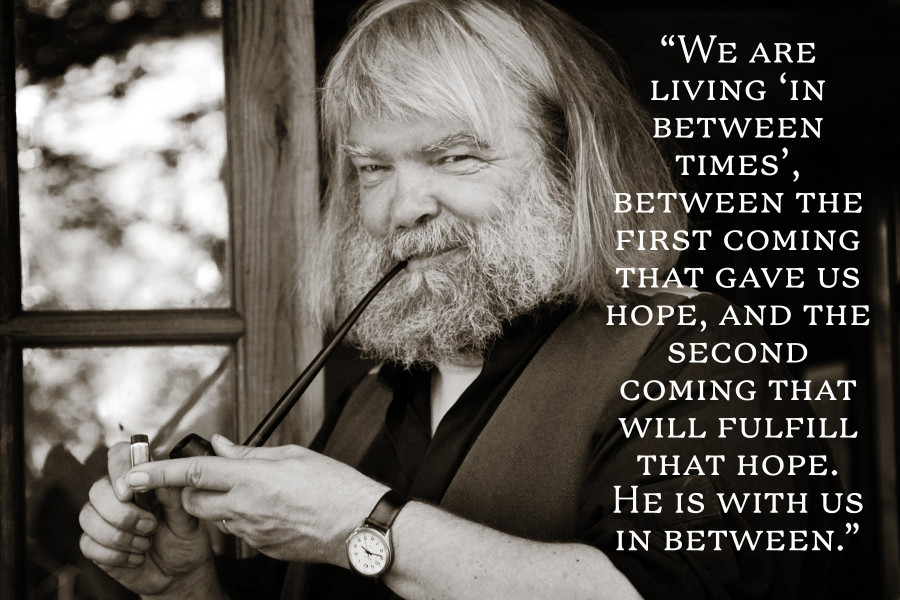
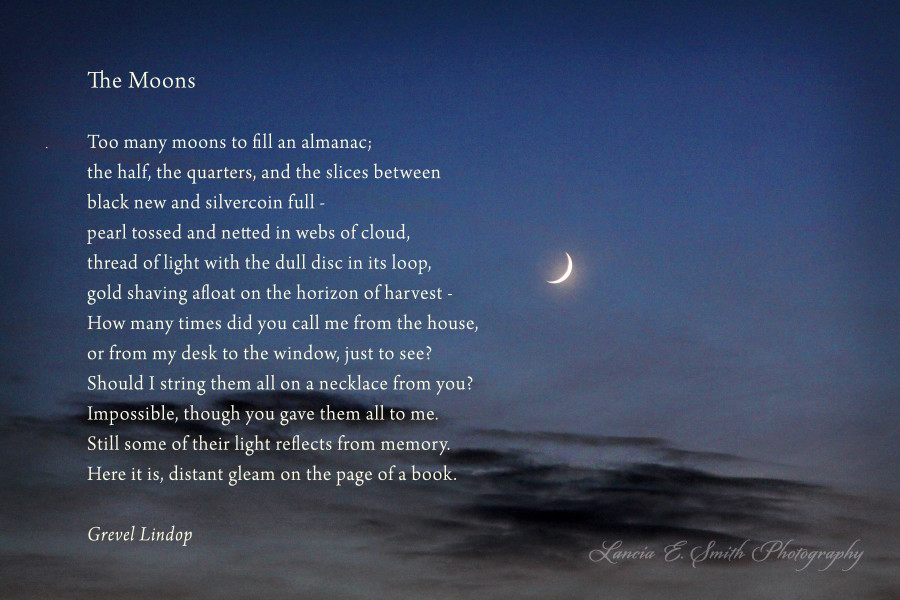
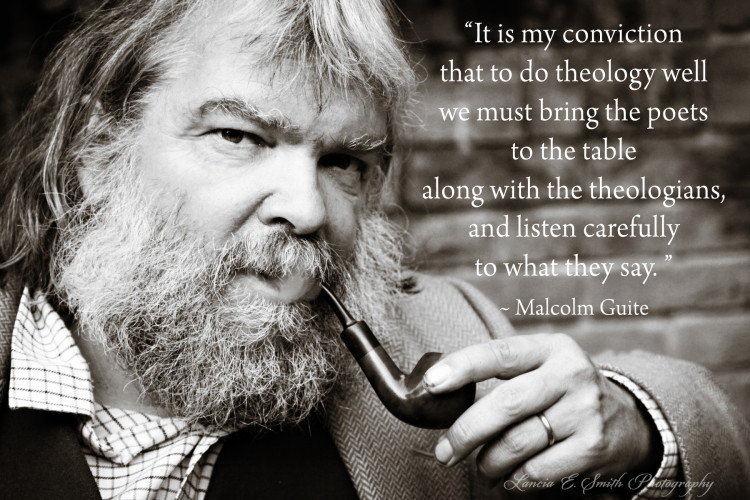
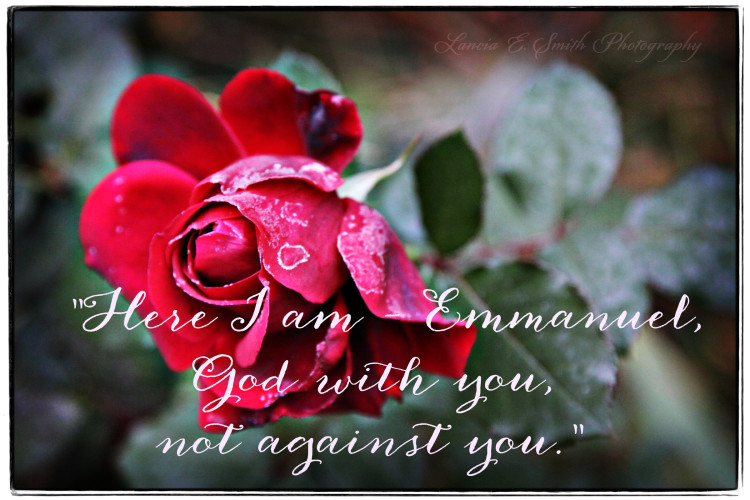
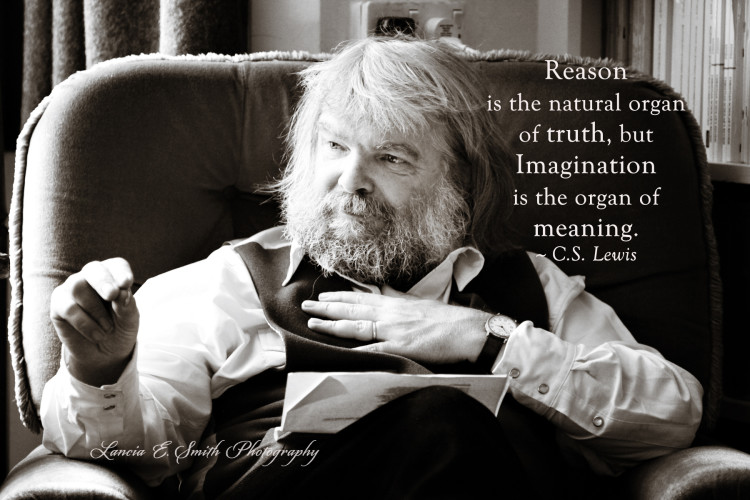
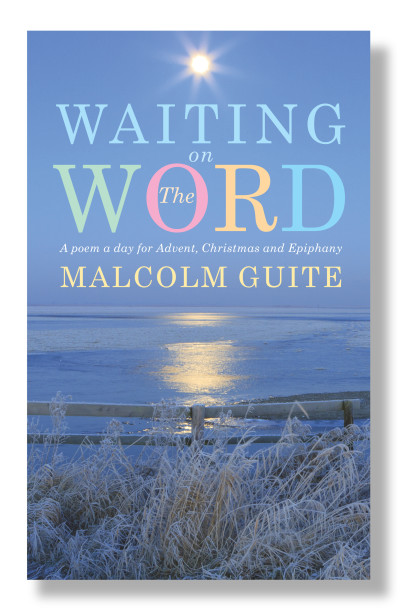

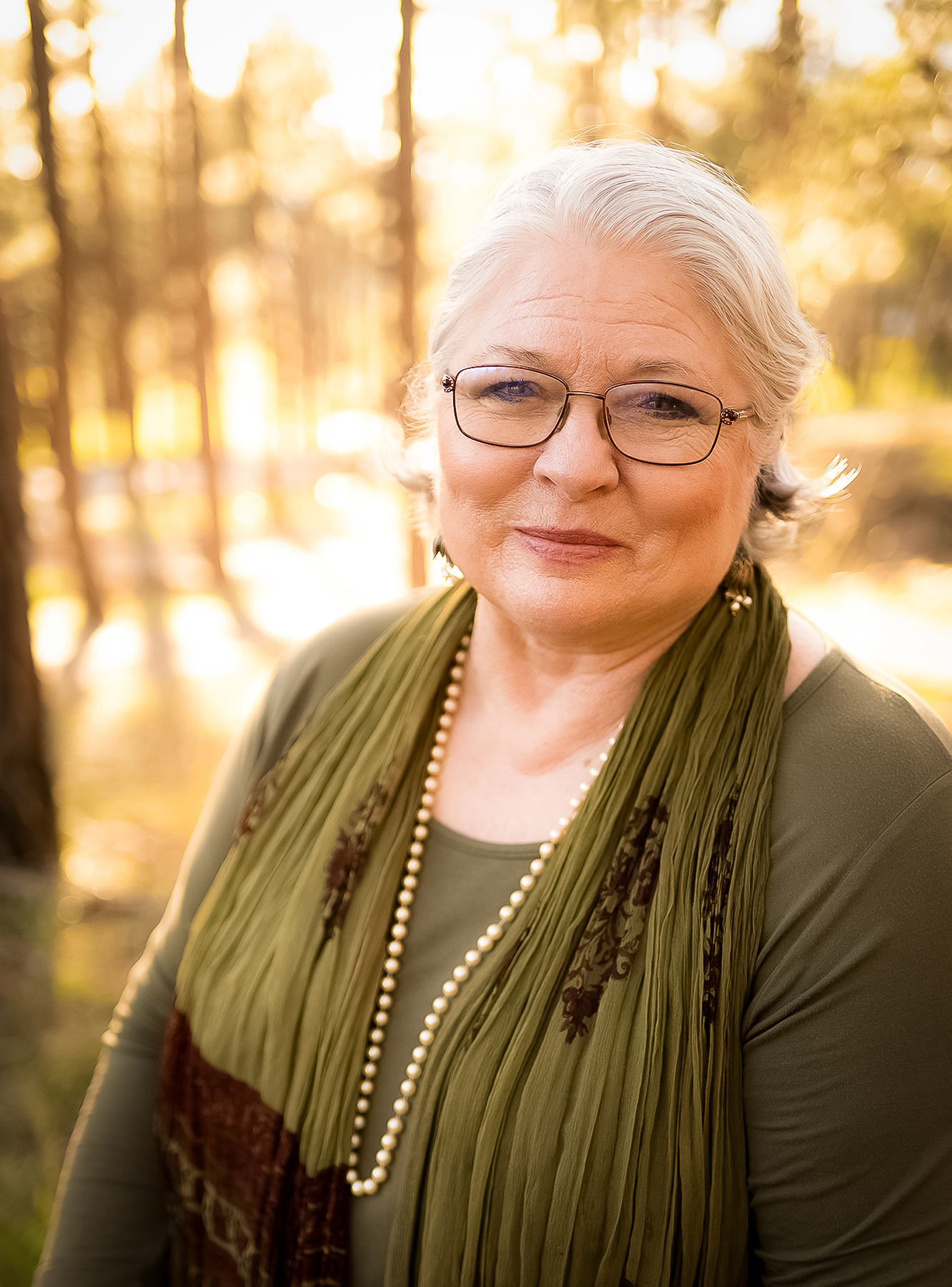
Add a comment
Comments Off on Interview with Malcolm Guite – Waiting on the Word for Advent